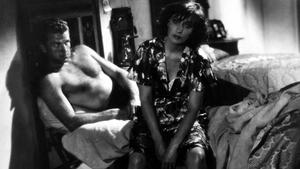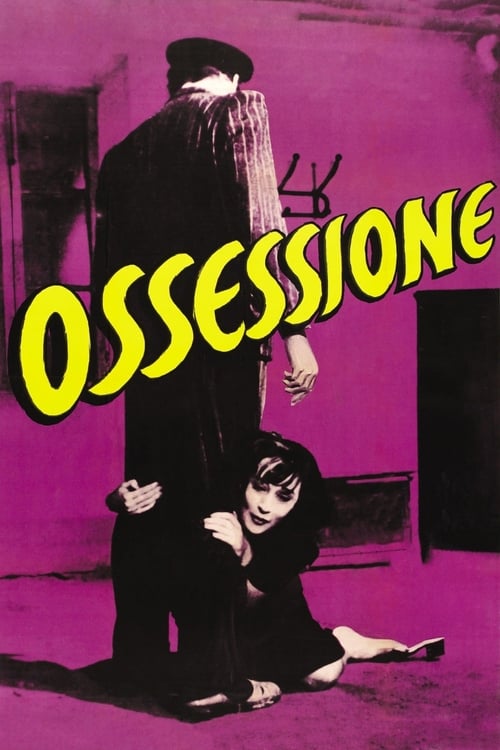Cast
View AllCrew
Director
- Luchino Visconti
Producer
- Libero Solaroli
Reviews
CinemaSerf
So much of this adaptation of James Cain's "Postman Always Rings Twice" novel depends on it's stunningly intimate, almost adulatory, photography and on that score this really does not disappoint. "Giovanna" (Clara Calamai) is trapped in a loveless marriage with the older, drunken and thuggish "Giuseppe" (Juan de Landa) when the drifter "Gino" (Massimo Girotti) happens by. He's a jack of all trades and they can use him to help around the place in return for his bed and board. Quite quickly, though, she makes it clear she'd prefer it were her bed, and the pair are soon scheming an end to her loathsome predicament. It turns out that that's not so difficult to achieve, but what of events thereafter? The police, the insurance, the struggling business, oh - and the guilt. It's that latter element that gradually gnaws away at their relationship and it's this last hour or so that sees Visconti at his creative best. The highly structured but entirely natural look of the scenarios, the score and the increasingly frenetic dialogue raise the tension appreciably and though there is a tangible chemistry throughout from Calamai and Girotti, it's one that intensifies as an uncertain denouement beckons. You can just imagine the response it would have received in wartime Italy as it questions issues of faith and fidelity, crime and lust - indeed I'm quite surprised all the prints weren't burnt at the stake. Did this postman actually ring twice? I'm not sure he did, but I'm not sure that mattered to me in the end.
Jan 19, 2025
Thematic Analysis
As a dramatic work, Obsession examines complex human relationships and emotional struggles against the backdrop of a period setting that reflects societal issues of its time. The character development particularly stands out, offering viewers a chance to reflect on their own life journeys.
Director Luchino Visconti brings their distinctive visual style to this film, continuing their exploration of themes seen in their previous works while adding new elements. Their approach to character development and emotional depth creates a viewing experience that rewards close attention.
Released in 1944, the film exists within a cultural context that now offers viewers historical perspective on the social issues of that era. Its critical acclaim reflects its artistic achievements and its place in cinema history.
Did You Know?
- The production of Obsession took approximately 35 months from pre-production to final cut.
- The final cut of the film runs for 140 minutes, though the director's initial assembly was reportedly 187 minutes long.
- The screenplay went through 9 major revisions before the final shooting script was approved.
- Several scenes were filmed in multiple locations to capture the perfect setting.
- The musical score contains over 70 unique compositions.
Historical Context
- In 1944, when this film was released:
- Rock and roll music was revolutionizing popular culture.
- Television was becoming a dominant form of home entertainment.
- The film industry was dominated by major studios, with independent cinema still in its early development.
How This Film Stands Out
While Obsession shares thematic elements with other films in its genre, it distinguishes itself through its unique approach to storytelling, visual style, and character development.
Unlike Forrest Gump, which takes a more conventional approach to its subject matter, Obsession offers a fresh perspective through its innovative visual language and narrative structure.
While films like American Beauty and Dancer in the Dark explore similar territory, Obsession stands apart through its distinctive directorial vision and pacing.
This film's unique contribution to cinema lies in its bold artistic choices and willingness to challenge viewer expectations, making it a valuable addition to its genre.
Details
- Release Date: April 8, 1944
- Runtime: 2h 20m











